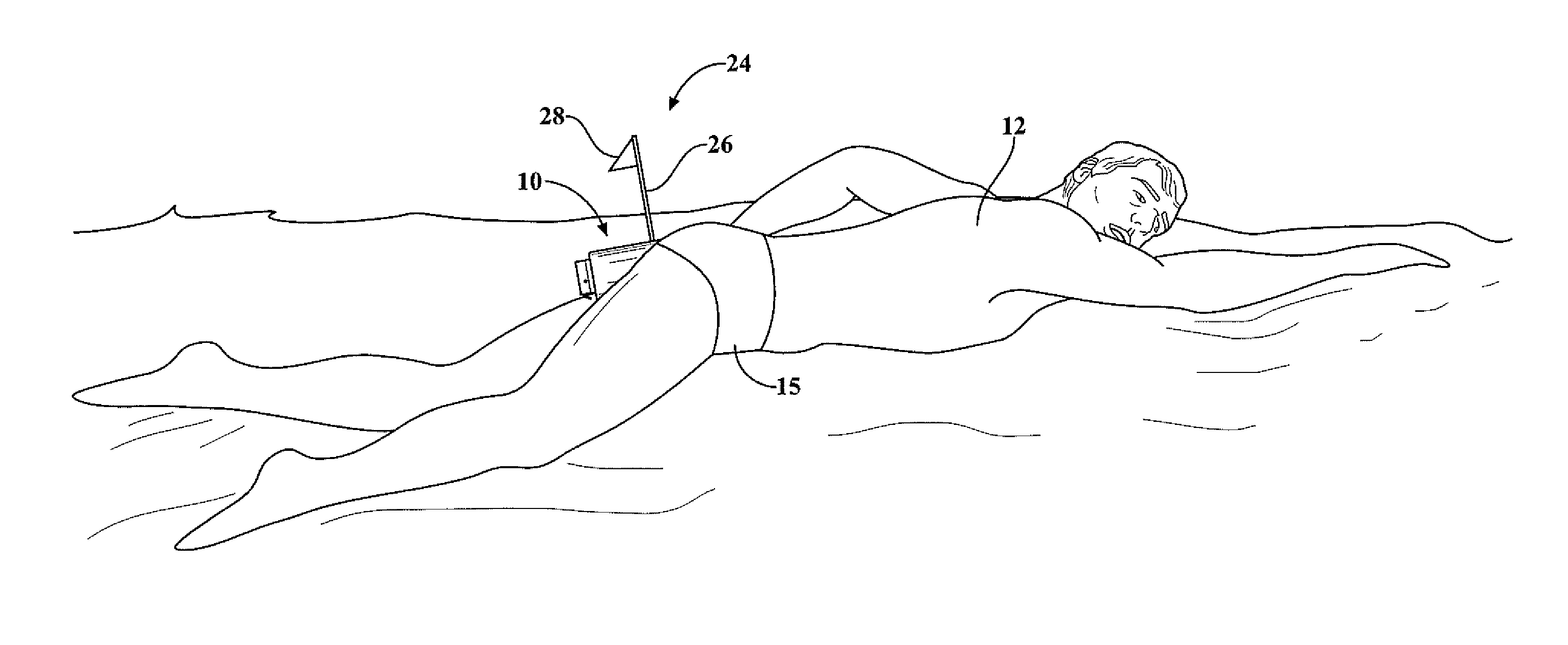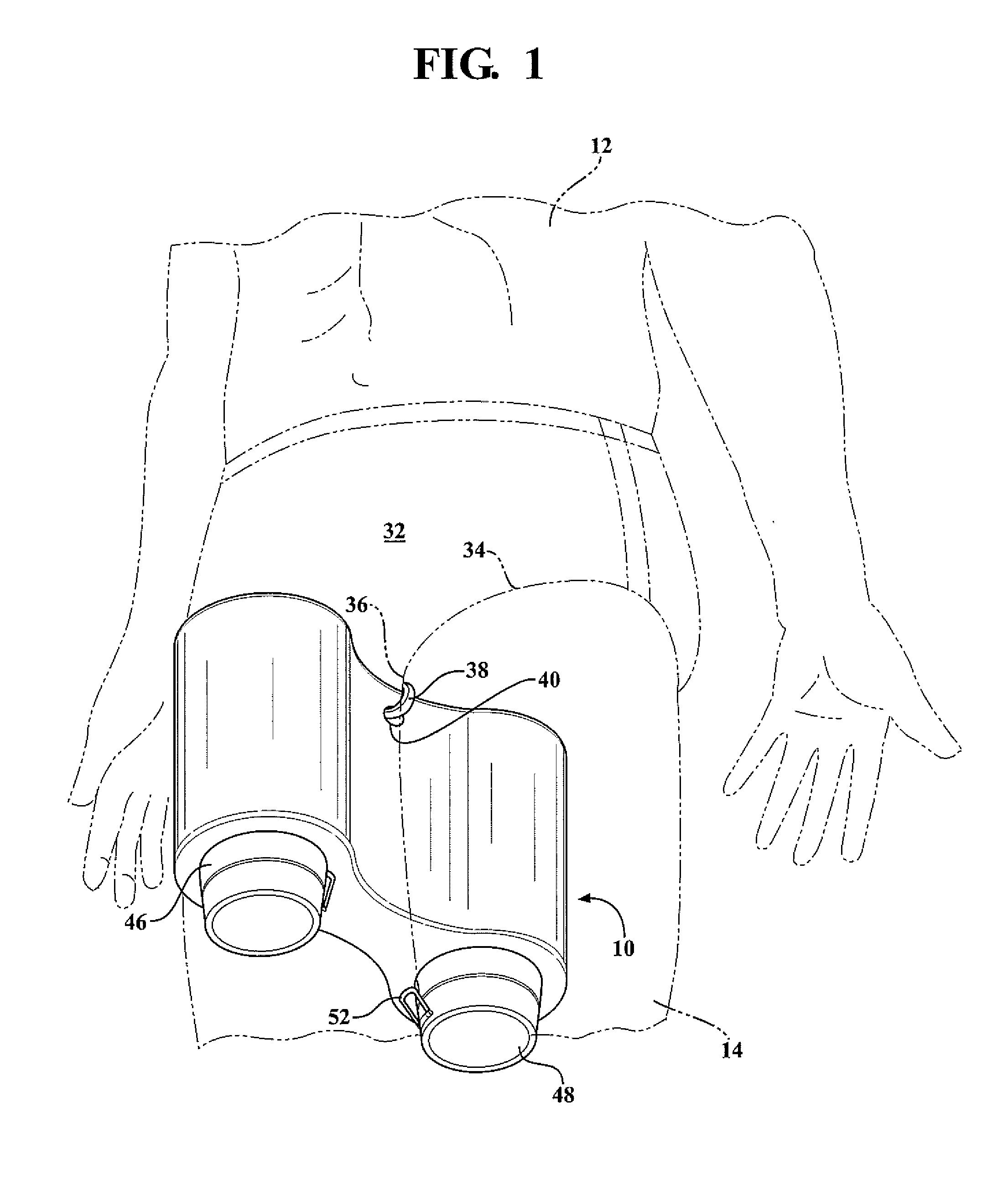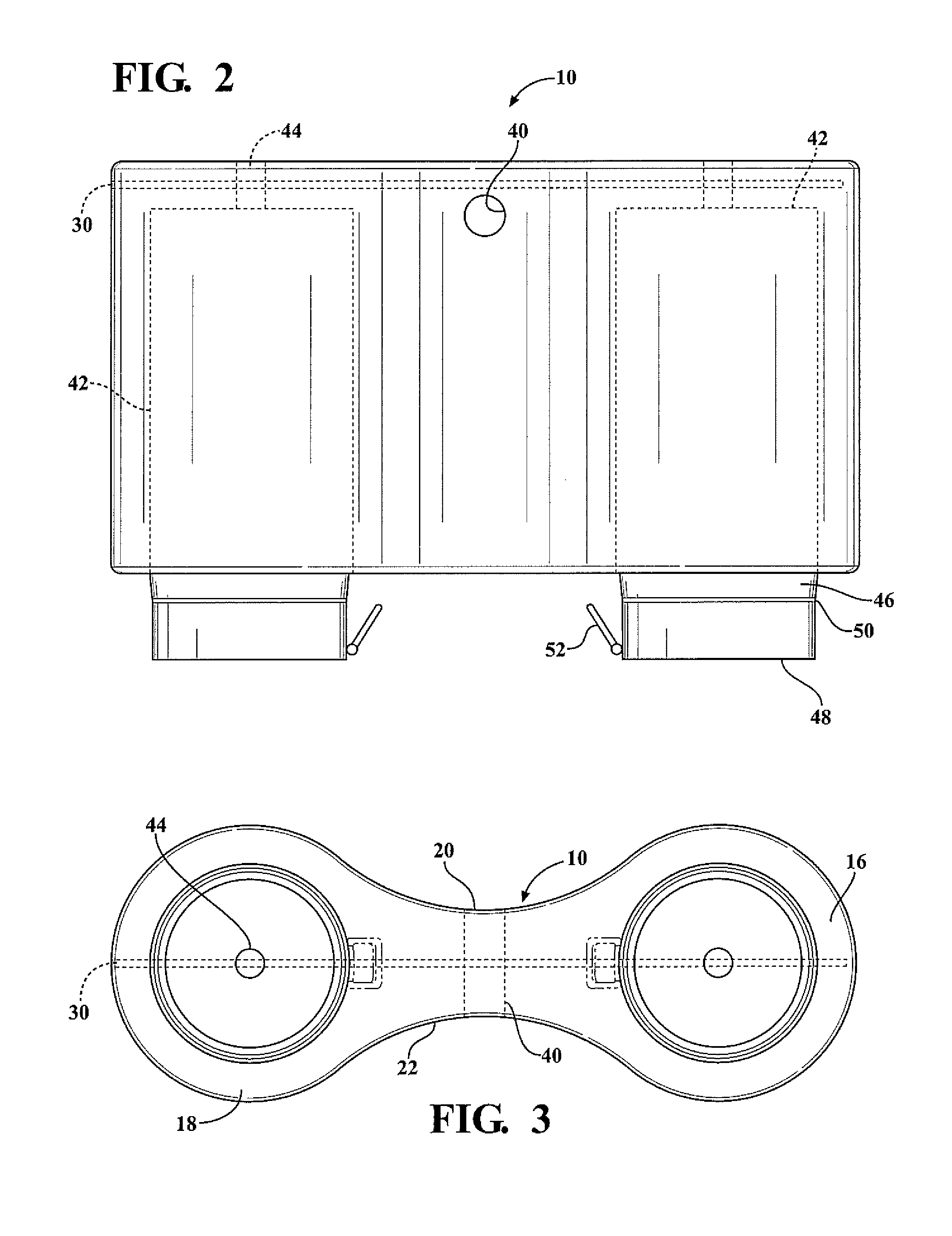Swimmer's training buoy with variable ballast
a technology for swimming buoys and ballasts, which is applied in swimming, sport apparatus, swimming aids, etc., can solve the problems of buoys being easily outgrown by young swimmers, devices suffering from many limitations, and being susceptible to dislodge, so as to achieve the effect of sufficient resilience and easy adjustment for different swimmers
- Summary
- Abstract
- Description
- Claims
- Application Information
AI Technical Summary
Benefits of technology
Problems solved by technology
Method used
Image
Examples
Embodiment Construction
[0027]A buoy according to the present invention is generally indicated by the numeral 10 in FIGS. 1 through 8 of the drawings. As shown in the drawings, the buoy is shaped and configured so as to be positioned between the legs 14 of the swimmer 12. Preferably, the buoy is formed as a unitary body from a flexible polyethylene foam or any highly buoyant material, which may be formed by molding, extrusion, heat melt process, die cutting or any other method known to those skilled in the art. Preferably the buoy 10 is formed of a suitable resilient and non-abrasive foam material so as to provide sufficient flotation to the swimmer's legs while at the same time minimizing irritation or discomfort. The buoy 10 is formed so as to have a first cylindrical portion 16 and a second cylindrical portion 18 interconnected by a connecting portion 20, creating a rounded hour glass shaped cross-section. The connecting portion 20 of the buoy 10 serves to form concave portions 22 which engage the inter...
PUM
 Login to View More
Login to View More Abstract
Description
Claims
Application Information
 Login to View More
Login to View More - R&D
- Intellectual Property
- Life Sciences
- Materials
- Tech Scout
- Unparalleled Data Quality
- Higher Quality Content
- 60% Fewer Hallucinations
Browse by: Latest US Patents, China's latest patents, Technical Efficacy Thesaurus, Application Domain, Technology Topic, Popular Technical Reports.
© 2025 PatSnap. All rights reserved.Legal|Privacy policy|Modern Slavery Act Transparency Statement|Sitemap|About US| Contact US: help@patsnap.com



